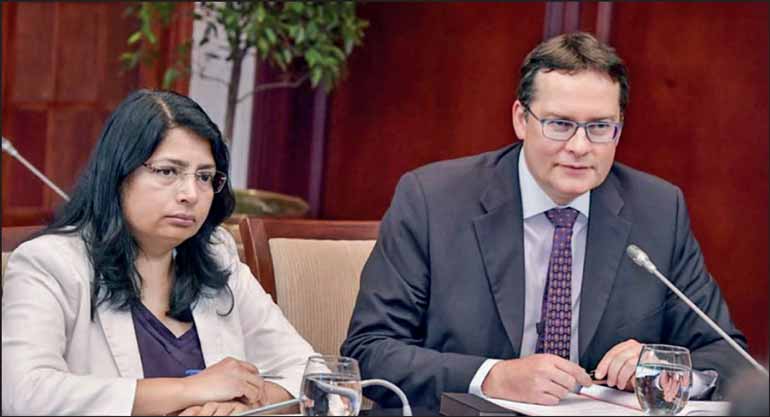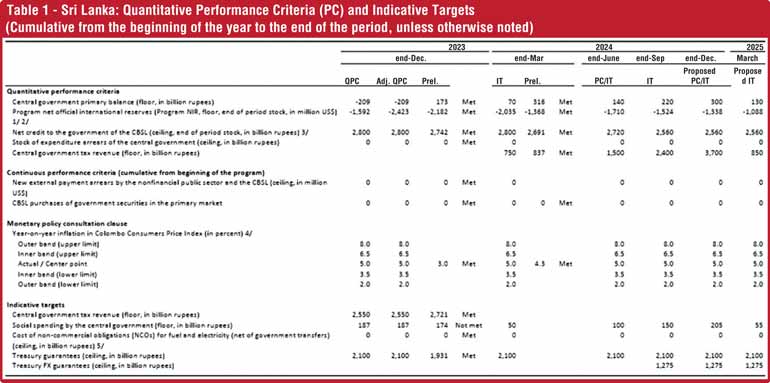Wednesday Feb 25, 2026
Wednesday Feb 25, 2026
Friday, 20 December 2024 00:20 - - {{hitsCtrl.values.hits}}


 This week, social media was abuzz with controversy surrounding the qualifications of certain politicians within the ruling party and Opposition. The Opposition emphasised the importance of transparency and honesty in leadership, arguing that openly sharing qualifications is essential for maintaining public trust and accountability. They assert that this underscores a core principle of democratic governance: honesty as the foundation of public trust as highlighted by the NPP.
This week, social media was abuzz with controversy surrounding the qualifications of certain politicians within the ruling party and Opposition. The Opposition emphasised the importance of transparency and honesty in leadership, arguing that openly sharing qualifications is essential for maintaining public trust and accountability. They assert that this underscores a core principle of democratic governance: honesty as the foundation of public trust as highlighted by the NPP.
However, less than a month after the last General Election, this very principle seems to have backfired on the NPP, following the Speaker’s debacle. It is worth noting that educational qualifications are not a requirement to serve as a Member of Parliament in Sri Lanka. The eligibility criteria are limited to citizenship and being over 18 years of age.
At this critical juncture, what matters far more is charting a viable pathway out of the ongoing economic crisis. Sri Lanka faces significant debt payments due by 2027, and as the new year approaches, the focus must shift toward recovery and reform. Peter Breuer, Senior Mission Chief for Sri Lanka, has consistently emphasised that while the country has made commendable progress in its recovery efforts, it is still not out of the woods. Safeguarding the hard-won gains remains imperative.
To fully overcome the man-made crisis of 2021, the nation must prioritise the following five key areas:
1. Stabilisation of the economy and debt management
Sri Lanka must restore economic stability through disciplined fiscal management and sustainable debt restructuring. Debt of Sri Lanka is unsustainable, the roots of the crisis, was commercial borrowing for development. Therefore it is important to restore debt sustainability. Continued engagement with international financial institutions, such as the IMF, will help build investor confidence. Attracting foreign direct investment (FDI) in sectors like manufacturing, tourism, logistics, power and technology is vital for recovery and long-term growth.
2. Strengthening energy security
Addressing the energy crisis is critical. Transitioning toward renewable energy sources—solar, wind, and hydropower—will reduce dependence on costly fuel imports while aligning with global sustainability trends. Investments in infrastructure and energy policy reforms can transform Sri Lanka into a more energy-resilient nation, lowering costs for low income households and industries.
3. Skill development
Reforming the education system to match global standards is essential. Emphasising digital literacy, technical skills, and critical thinking will prepare the youth for a competitive regional economy. Public-private partnerships for vocational training and entrepreneurship development can bridge the gap between education and employment, addressing both skill shortages and unemployment.
4. Agricultural productivity and food security
Boosting agricultural efficiency, distribution and ensuring food security remain crucial. Modernising farming techniques, improving supply chains, and incentivising innovation can reduce dependency on imports while strengthening rural economies. Policies that empower farmers and promote sustainable business practices will ensure long-term agricultural resilience.
5. Poverty reduction
Poverty reduction is a critical priority, particularly after the economic crises that have widened income inequality and worsened living conditions. Expanding and strengthening social safety nets to reach vulnerable populations is vital. Transparent and efficient delivery of subsidies, cash transfers, and food assistance can directly alleviate poverty while fostering inclusivity. Therefore the authorities need to keep an eye on this vulnerable sector.
The path forward
Focusing on five key areas—economic stability, energy security, education reform, agricultural productivity, and poverty reduction—will be critical for Sri Lanka to navigate 2025 successfully. Addressing these priorities with urgency and unwavering commitment will not only drive recovery but also lay the foundation for a sustainable and inclusive future.
While current headline-grabbing issues such as eliminating corruption, recovering stolen assets, rightsizing the public service, and curbing wasteful Government expenditure are very important, they represent longer-term structural changes to the national fabric. These initiatives, though crucial, primarily serve as short-term optics and will not deliver substantial national benefits in the immediate or medium term. They also demand sustained political commitment and determination to achieve tangible outcomes.
In reality, focusing on these issues full time now risks consuming valuable bandwidth that is urgently needed to address the key priorities articulated in this article. By concentrating on what matters most, Sri Lanka can channel its human and financial resources and efforts toward building resilience and ensuring a stronger economic trajectory.
References:
https://slguardian.org/imf-exposes-critical-failures-in-sri-lankas-debt-management/amp/
https://www.aljazeera.com/amp/news/2024/11/23/imf-approves-third-review-of-sri-lankas-2-9bn-bailout-but-warns-of-risks
https://economynext.com/sri-lankas-imf-program-review-what-can-happen-next-181847/
Chandrasekhar C. P,, J. Ghosh and D. Das (2023): “Paying with Austerity: The Debt Crisis and Restructuring in Sri Lanka”, Working Paper, https://peri.umass.edu/publication/item/1776-paying-with-austerity-the-debt-crisis-and-restructuring-in-sri-lanka
https://slhcs2024.com/wp-content/uploads/2024/09/HC-Summit-Report-2024.pdf